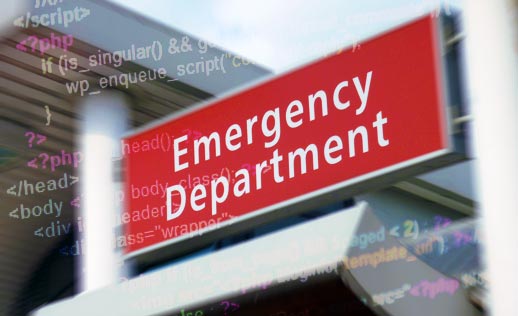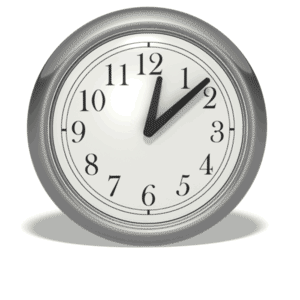WordPress Emergency – Are You At Risk?
At Site Doctor 911, we spend our days making sick WordPress sites healthy, and keeping healthy sites safe and secure.
We also have to be prepared to deal with WordPress emergencies.

For example, here’s an email we recently received from a well-respected surgeon.
“I see obscenities on my site (was told by patients). Has it been hacked?”
A quick look at his site confirmed it. There were vulgar references to parts of the anatomy that had no business being on his site!
Who knows how long those words had been on his homepage before a concerned patient let him know?
And who knows what kind of damage it did to his reputation in the meantime?
If you use WordPress, you are using the planet’s most popular content management system.
Unfortunately, that also makes your website or blog a prime target for hackers.
In some ways the surgeon got off easy; his site had only been tagged with digital graffiti.
Hackers can infect your visitors’ computers with malware.
They can steal information from you that is not meant for the public.
They can even take your business completely off line.
[bctt tweet=”If your business success depends on the health of your site and something goes wrong, it’s like hanging a ‘Closed’ sign in your window. “]
On the internet, there’s always someone right next door who is open for business.
You don’t have to have millions of monthly visitors to be targeted either. It’s a numbers game.
In fact, right now, malicious hack bots are probing thousands of WordPress sites, testing for known vulnerabilities they can exploit.
But the point of this article is not to make you feel paranoid, it is to prescribe a few simple steps you can take to protect your WordPress site or blog and keep it healthy.
- Use strong passwords, and never use ‘admin’ as your WordPress username; it’s the first thing hack bots look for. For help creating a secure password, search online for ‘strong password generators’.
- Use security plugins that block brute force attacks and strengthen WordPress security. You can find several good ones on WordPress.org.
- Always keep all your plugins, themes and WordPress core files up to date. One of the primary ways hackers attack your site is by exploiting out-of-date software, and the reason for updates is often to patch security vulnerabilities that have been uncovered.
- Follow the recommendations for hardening your WordPress installation on WordPress.org.
- Monitor up-time. If your site or blog is offline, then something is wrong. It may not be anything to worry about, but you should take the time to investigate. You can use a monitoring service like UptimeRobot to let you know whenever there’s a problem so you can check it out.
- Make regular backups of your WordPress files and database, and store them off-site. That way should the worst happen, you can restore your site and get back online quickly.
Keeping your site safe and healthy requires constant attention.
Don’t let the ease of use and popularity of WordPress make you think you can just ‘set it and forget it’.
It can up a lot of your time, but not doing it can lead to a hacked or broken site and potentially lost opportunity.

Of course, if you can think of better uses for your time, Site Doctor 911 can take care of all of this for you.
We have several affordable WordPress support plans available to keep your site or blog safe, healthy and online.
So spend the extra time to keep WordPress safe.
Better yet, spend your time on other stuff and let the professionals at Site Doctor 911 take care of it for you.

This Post Has 0 Comments